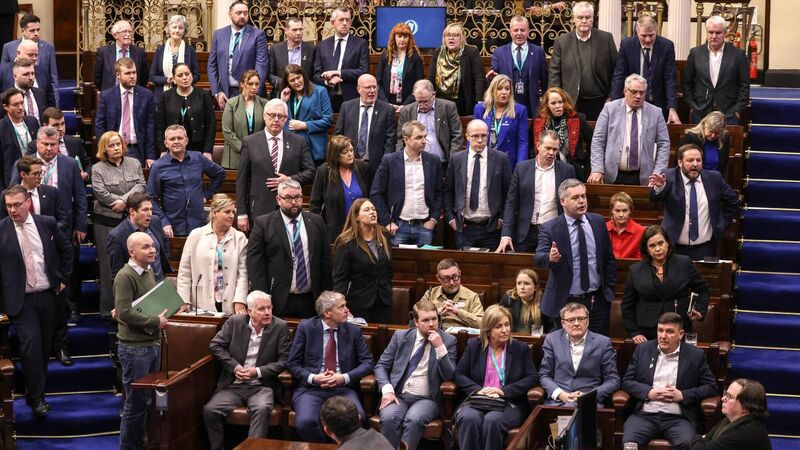Irish Examiner view: First day of Dáil does not inspire confidence

Opposition bench members standing and objecting during the Taoiseach nomination process. Picture: Flickr/Houses of Oireachtas
Try from €1.50 / week
SUBSCRIBEThe first meeting of a new Dáil is always an occasion of pure political theatre, with all in Leinster House signalling the purest of intentions.
Those in power seek to radiate a sense of high purpose while those in opposition seek to undermine that sense of high purpose, though the preferred term is holding the government to account.
Already a subscriber? Sign in
You have reached your article limit.
Annual €130 €80
Best value
Monthly €12€6 / month
Introductory offers for new customers. Annual billed once for first year. Renews at €130. Monthly initial discount (first 3 months) billed monthly, then €12 a month. Ts&Cs apply.
CONNECT WITH US TODAY
Be the first to know the latest news and updates
Newsletter
Sign up to the best reads of the week from irishexaminer.com selected just for you.
Newsletter
Keep up with stories of the day with our lunchtime news wrap and important breaking news alerts.
Newsletter
Sign up to the best reads of the week from irishexaminer.com selected just for you.
Friday, February 13, 2026 - 5:00 PM
Friday, February 13, 2026 - 5:00 PM
Friday, February 13, 2026 - 4:00 PM
© Examiner Echo Group Limited